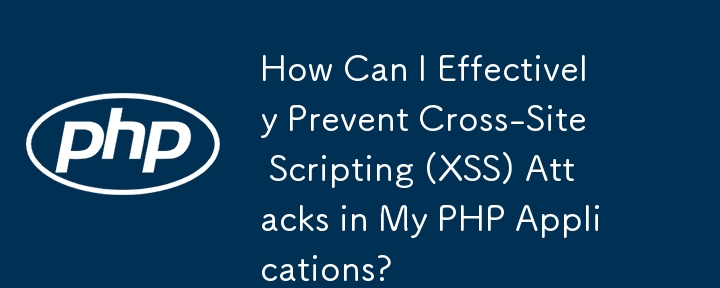

Avoiding XSS Attacks in PHP: Essential Best Practices
Preventing XSS attacks in PHP requires a comprehensive approach that encompasses both input handling and output sanitization. While the measures you have implemented, such as enabling magic quotes and disabling register globals, are a good start, they are not sufficient on their own.
Input Handling Best Practices:
Output Sanitization Best Practices:
Continuous Monitoring and Analysis:
Additional Considerations:
By adopting these best practices, you can significantly reduce the risk of XSS attacks on your PHP site. Remember, security is an ongoing process that requires continuous monitoring, analysis, and improvement.
The above is the detailed content of How Can I Effectively Prevent Cross-Site Scripting (XSS) Attacks in My PHP Applications?. For more information, please follow other related articles on the PHP Chinese website!
 Why is my phone not turned off but when someone calls me it prompts me to turn it off?
Why is my phone not turned off but when someone calls me it prompts me to turn it off?
 How to set up hibernation in Win7 system
How to set up hibernation in Win7 system
 What does Jingdong plus mean?
What does Jingdong plus mean?
 The difference between cellpadding and cellspacing
The difference between cellpadding and cellspacing
 Sublime input Chinese method
Sublime input Chinese method
 How to solve garbled characters in PHP
How to solve garbled characters in PHP
 What currency is USDT?
What currency is USDT?
 rtmp server
rtmp server
 What is digital currency
What is digital currency




